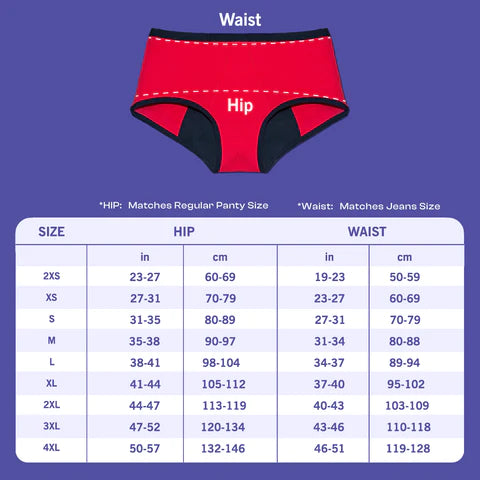A lot of women in the world experience mental health problems that affect their day-to-day life during the menstrual cycle. Studies suggest that women are twice as likely to suffer from at least one psychiatric illness than men. This is a significant figure, and the mental health of women should be taken seriously and promoted.
Some of the reasons some may have mental health problems happening every month include stress, medication, lack of physical activity and even worrying about their menstrual period. It's time we got real about these issues, talked about them, and how we can begin to solve them.
The mental health of women should be taken seriously and promoted. The menstrual cycle can cause significant changes in mood, energy levels, and the ability to cope with daily life. This may make it difficult for women to manage their symptoms effectively, which can lead to them feeling isolated and alone.
In this post, we'll share tips on how to beat mental health issues during periods. This is a well-researched article by experts in the field.
1. Get enough sleep during periods
Sleep helps manage stress when you are feeling stressed. Sleep helps improve your mental health condition and helps fight anxiety and depression. During periods, try to get between six to eight hours of sleep each night. If you cannot do this on a regular basis, aim for at least six hours of sleep at night. You can also try a nap during the day if it suits your schedule better than going to bed early in the evening. It also improves your mood and reduces the negative effects of hormones associated with PMS (premenstrual syndrome).
2. Exercise
Exercise is good for general health as well as mental health during periods because it releases endorphins that help relieve pain and reduce stress levels. It also improves self-esteem and boosts confidence by releasing endorphins in the brain that make you feel good about yourself. It also increases oxygen flow to the brain, which helps it function better and improves memory function.
Exercise regularly during periods so that you can reduce the physical symptoms like bloating, cramping, fatigue, and headaches associated with menstrual cycles; exercising also reduces stress levels which helps improve overall mental health conditions such as anxiety and depression during periods.

3. Healthy Diet
It's been proven that a healthy diet can improve your mental health. In fact, one study found that eating a Mediterranean-style diet is associated with a reduced risk of depression and anxiety. In fact, research has shown that eating a healthy diet can help reduce the symptoms of depression by as much as 50%. This is because the brain needs certain nutrients in order to function properly and keep you feeling good.
Also Read: Benefits of Eating Eggs during Periods
So what should you be eating? For starters, try adding more omega-3 fatty acids into your diet—these are found in fish such as salmon and trout as well as in flaxseed oil. They help fight inflammation in the body which can lead to both physical and mental health problems such as depression. Omega-3 fatty acids also increase serotonin levels which helps lift your mood!
Another thing that will help improve your mental health is increasing your intake of vitamins B6 and B12. These vitamins are essential for making neurotransmitters like norepinephrine which affects how quickly messages are transmitted between brain cells or neurons. In other words: they help keep things running smoothly!
Here are a few additional tips:
- Eat breakfast every day—it helps you stay full until lunchtime and keeps your blood sugar stable throughout the day.
- Eat more protein at breakfast—that way you'll have enough energy to make it through an entire day without crashing or feeling tired.
- Snack on veggies instead of chips or cookies—they're high in fiber and low in calories so they'll keep your stomach full longer than processed snacks that contain more fat and sugar than vitamins or minerals!
Try to consume healthy fats. Also cut down on your sugar intake and make it a practice.

4. Practice Yoga
Yoga during your periods can help improve your mental state and overall health, according to health care professionals.
Yoga helps fight emotional disorders, and it also helps you sleep better. Yoga is an effective way to combat stress, which can be particularly harmful to people with hormonal issues such as PMS or menopause.
Yoga can also improve your body image and reduce acne flare-ups during periods. There are many different types of yoga that can help you become more in tune with your body, including Kundalini and Vinyasa yoga.
Yoga is also a great tool to help deal with stress and other negative emotions, as well as to improve your mood and outlook on life. The practice of yoga allows you to focus on the present moment, rather than allowing yourself to get caught up in negative thoughts or feelings. By focusing on your breathing and holding poses for long periods of time, you can learn how to relax and take control of your mind.
5. Include more Calcium in your diet
During periods, your body undergoes many changes. One of the most important is the depletion of nutrients in your body. This includes calcium, which is an essential mineral for bone growth and overall health.
Calcium is also vital to fighting mental health disorders during periods. A study by Harvard Medical School showed that women who consumed more calcium were less likely to suffer from depression during their menstrual cycle.
The recommended daily intake of calcium is 1000mg per day, but this can be increased during periods as well. It’s best to get your daily dose through diet rather than supplements, as some studies have shown that too much calcium can be harmful to your bones.
In fact, research has shown that women who suffer from premenstrual syndrome (PMS) are more likely to have low levels of calcium in their bodies. Researchers believe this is because calcium helps regulate serotonin levels in the brain, which can affect moods.
6. Stop Smoking
Smoking is injurious to health. It greatly impacts both mental and physical health.
The lungs of a smoker are more prone to cancer, lung diseases, and other respiratory disorders. It also increases the risk of heart disease, strokes, and other cardiovascular problems. Moreover, smoking has been shown to cause many oral health problems like gum disease and tooth loss.
Smoking during periods affects women in a different way than men. Women are more likely to experience cravings for cigarettes that is due to hormonal changes in their bodies during menstruation. A woman’s menstrual cycle is affected by cigarette smoke which can lead to irregular periods, heavy bleeding, and an increased risk for infertility.

7. Reduce Alcohol Intake
Drinking alcohol during your periods is a bad idea. It can lead to a lot of negative side effects, including headaches, nausea and vomiting, dizziness, fatigue, and abdominal pain. In addition to these physical symptoms, alcohol consumption during menstruation also has an impact on your mental health. Studies have shown that drinking during periods can lead to depression and anxiety disorders.
Also Read: Alcohol During Periods: Drinking Beer during Periods & its effects
8. Get Creative
Getting creative during your periods can help you boost your mental health.
The best part about getting creative is that it doesn't have to be anything big or fancy, and it's something that you can do anytime and anywhere. Even if you're not feeling well, you can still find ways to make your days brighter by drawing a picture or writing a poem.
There are so many ways that creativity can improve your mental health. Here are just a few:
- Creativity helps us process our emotions better by giving us an outlet for all of the feelings we're having, whether they are good or bad.
- It helps us solve problems by offering a new perspective on things that might seem impossible at first glance.
- It gives us confidence in ourselves because we know we have something special within us waiting to come out!
9. Listen to Music
It's true—music has been shown to improve emotional health, reduce stress, and lower the production of cortisol (stress hormone) in our brains. That's because music is a form of self-expression that allows us to connect with others in a way that's not always possible through words alone.
In fact, healthcare professionals have suggested that people suffering from depression listen to music during their menstrual periods because it helps them feel better emotionally.

10. Stay Connected
It can be difficult to manage your stress during your periods, and it's important to remember that you're not alone. Other people around you are feeling the same way, and they're probably looking for ways to feel better too.
One thing that helps is connecting with other people who are going through the same thing as you! It can be really helpful to talk to someone who is going through the same thing as you because it helps normalize the experience and makes you feel less alone.
On a Final note
The first step to improving mental health during periods is recognizing the importance of women's mental health. Next, we need to approach this problem by empowering women and girls to discuss and learn about their bodies. Last but not least, we should increase awareness of women's mental health with the help of family members, teachers, and friends, among other people in our lives. Doing these things will hopefully help improve our mental health during periods. We hope that you found this blog helpful. Do share your thoughts below in the comments section.



